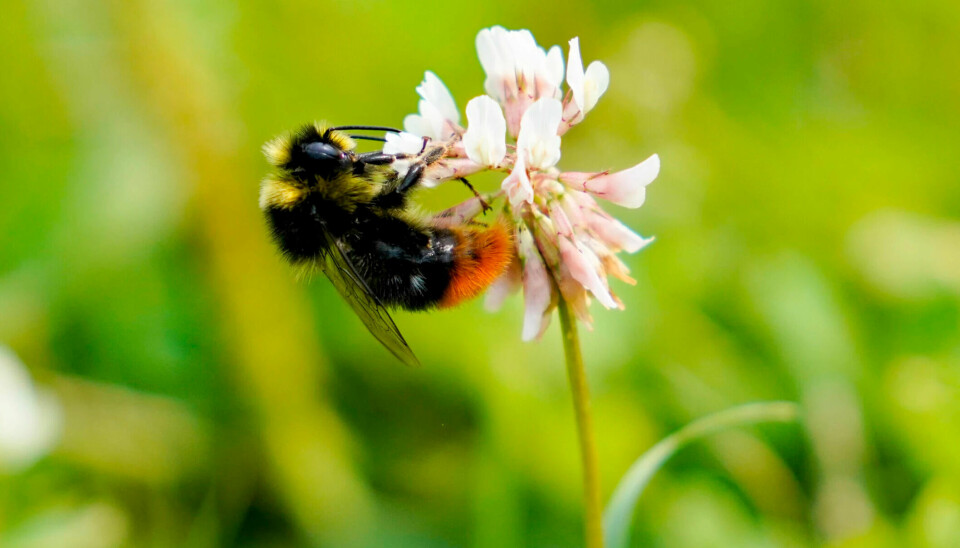
Tick repellent can cause learning difficulties in bumblebees
According to new research, a type of tick repellent for pets appears to harm both bumblebees and other animals. The EU is considering a ban on the substance.
The substance used against ticks is called imidacloprid and is available by prescription from veterinarians. When the substance is used on pets, it spreads into the environment.
When the researchers examined 20 rivers, they found the insecticide imidacloprid in 19 of them. In seven of the rivers, the concentration was higher than the threshold value, as reported by titan.uio.no (link in Norwegian).
Environmental toxins researcher Julie Sørlie Paus-Knudsen at the Department of Biosciences at the University of Oslo has studied the effects of the substance on bumblebees. She found several effects on the insects.
“Those who had ingested the insecticide learned less,” Sørlie Paus-Knudsen says.
In addition, they flew more slowly and became less active.
“This has a significant impact on their ability to gather food. It has not been shown in previous research that they fly slower. It is not surprising that they react negatively to imidacloprid because this substance is intended to kill insects,” the researcher says.
She advises pet owners to ask veterinarians for other, less harmful tick repellents.
According to Sørlie Paus-Knudsen, the EU was supposed to consider whether the substance should be banned by 2023. This has now been postponed to 2025 pending further data. In Norway, the substance is also used against salmon lice.
———
Translated by Alette Bjordal Gjellesvik.
Read the Norwegian version of this article on forskning.no































